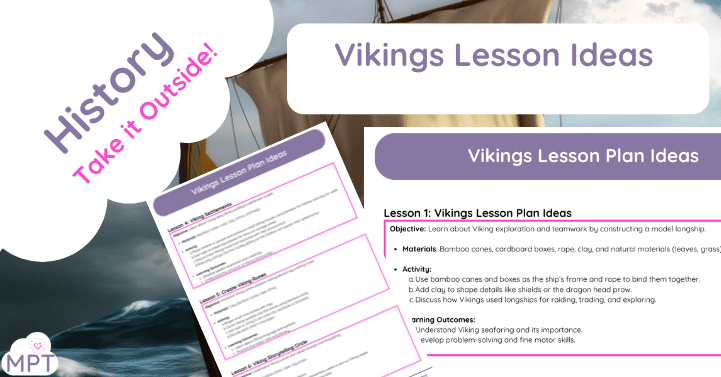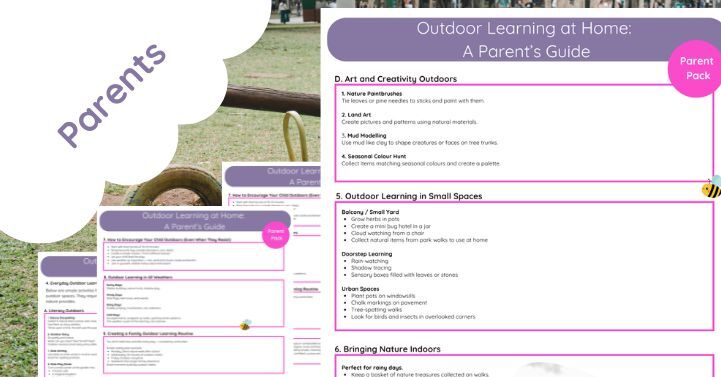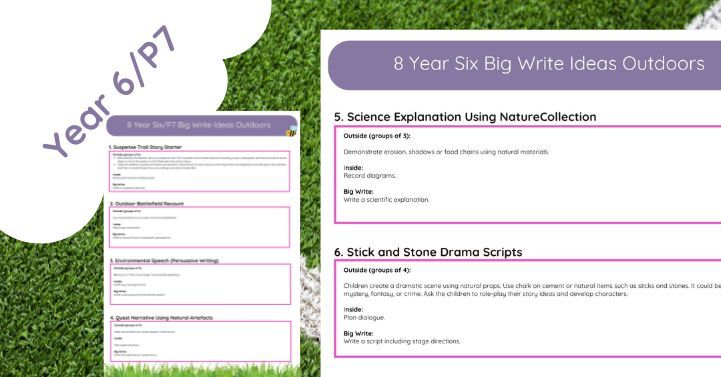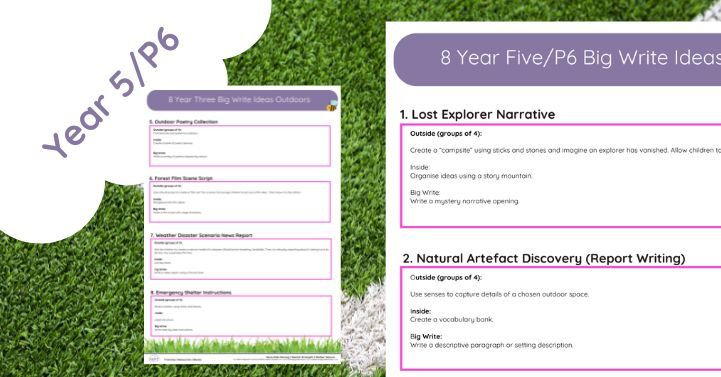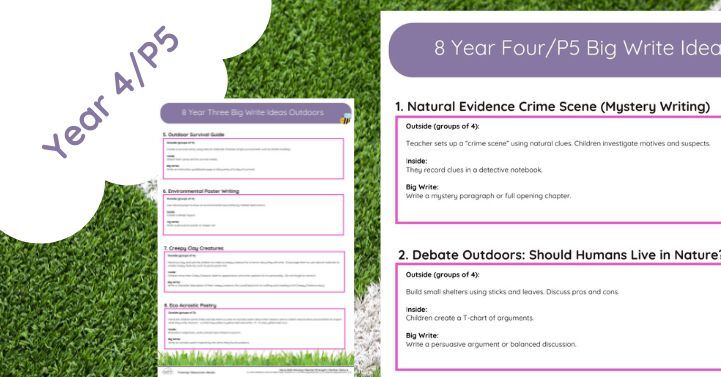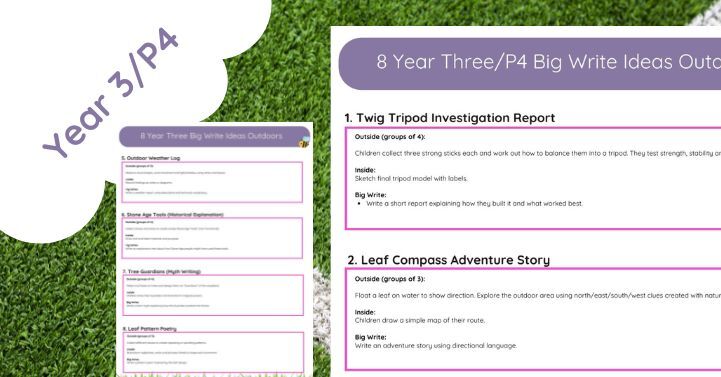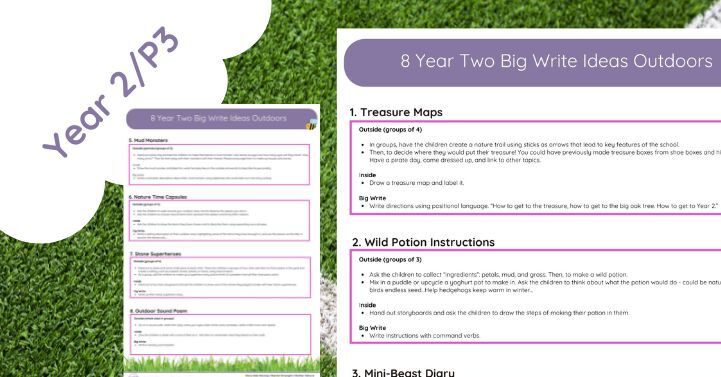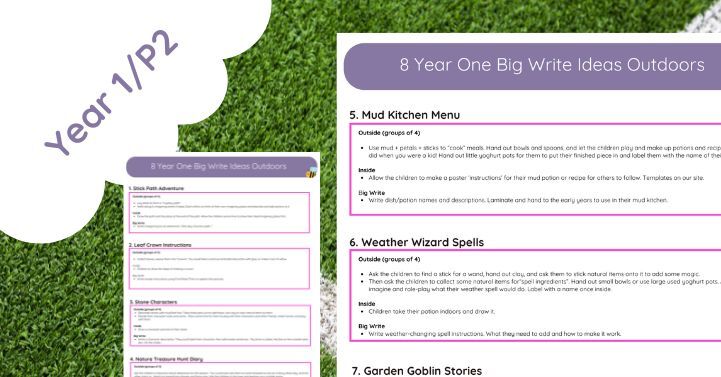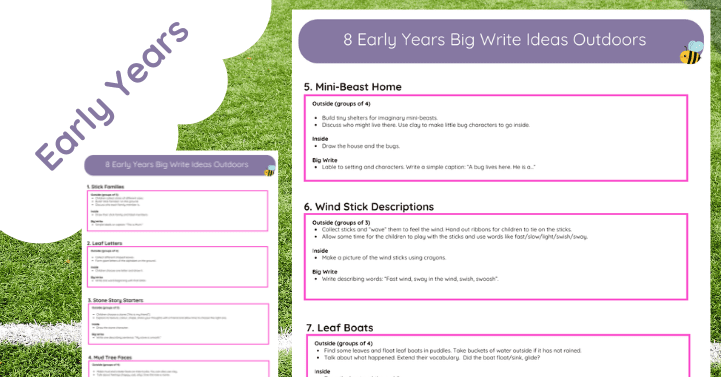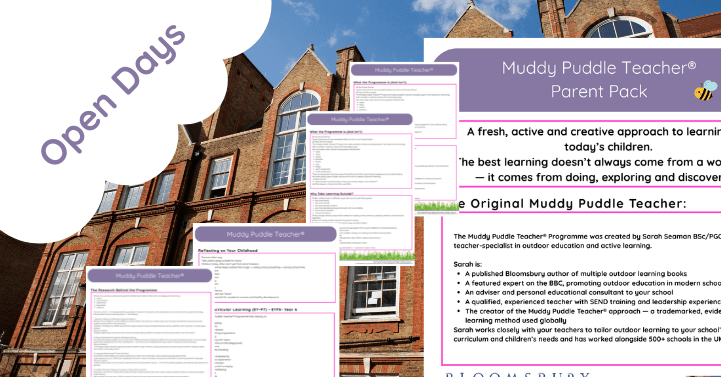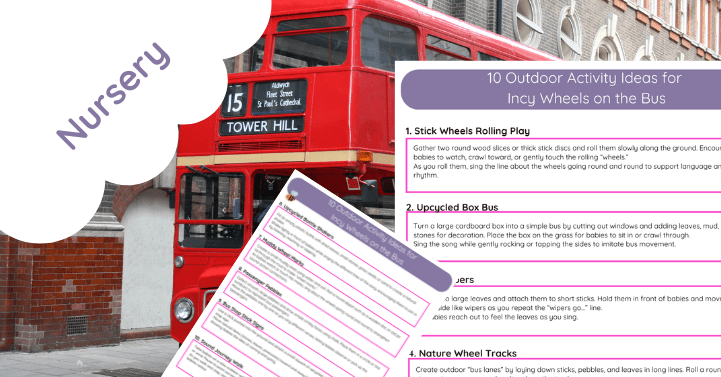Bring Viking history to life with the Vikings Lesson Ideas Pack—a dynamic resource designed to inspire creativity and engagement in your classroom or outdoor learning space. Perfect for educators, this pack is filled with hands-on activities and practical lesson ideas that explore the fascinating world of the Vikings, from their legendary longships to their rich mythology.
What’s Included?
- Crafting and Construction: Build Viking longships, shields, and settlements using natural and everyday materials like bamboo canes, clay, and rope.
- Interactive Role-Play: Reenact Viking raids, decode rune messages, and dive into their epic sagas with storytelling activities.
- STEM-Focused Activities: Explore Viking navigation techniques by creating sun compasses and engineering their iconic ships.
- Cultural Exploration: Delve into Viking art, trade, and daily life through immersive, hands-on projects.
Key Features:
- Easy to Follow: Step-by-step instructions ensure simple implementation for both indoor and outdoor settings.
- Curriculum-Aligned: Activities support history, literacy, STEM, and creative development goals.
- Sustainable Learning: Encourages using natural and reusable materials, making lessons environmentally friendly.
Whether you’re looking to spark curiosity in history or promote active, creative learning, the Vikings Lesson Ideas Pack equips you with everything you need to make learning about the Vikings an unforgettable adventure.
Integrating outdoor activities into history lessons, such as exploring Viking culture, significantly benefits neurodivergent learners. This approach enhances engagement, supports diverse learning needs, and fosters a deeper connection to the material.
Enhanced Engagement Through Sensory Experiences
Outdoor learning provides rich sensory experiences that can captivate neurodivergent students. For instance, constructing a Viking longship using natural materials allows students to engage tactilely and visually, making historical concepts more tangible. The Muddy Puddle Teacher approach emphasises using outdoor environments to enrich learning experiences.
Supporting Diverse Learning Styles
Neurodivergent learners often benefit from varied instructional methods. Outdoor history lessons cater to kinesthetic and visual learners by incorporating physical activities and visual stimuli. For example, reenacting Viking raids or building replicas of Viking settlements can help students grasp historical events more effectively. The University of Warwick highlights the importance of diverse teaching strategies to support neurodivergent students.
Reducing Anxiety and Enhancing Well-being
Natural settings have a calming effect, which can reduce anxiety and improve focus among neurodivergent students. Engaging in outdoor history lessons allows students to learn in a less restrictive environment, promoting relaxation and openness to new information. The Children & Nature Network discusses how nature-based occupational therapy can boost confidence and well-being in neurodivergent children.
Promoting Social Interaction and Collaboration
Outdoor activities encourage teamwork and communication. Group projects, such as constructing a Viking village, require students to collaborate, enhancing their social skills in a natural setting. Learning through Landscapes emphasizes that outdoor learning fosters social development and cooperation among students.
Improving Focus and Attention
Outdoor environments can help neurodivergent learners maintain attention and reduce restlessness. The dynamic nature of outdoor settings provides a stimulating yet controlled environment conducive to learning. The Education Hub notes that outdoor learning can improve concentration and engagement in neurodivergent students.
Encouraging Creativity and Imagination
Outdoor history lessons inspire creativity by allowing students to interact with their environment. Activities like crafting Viking artefacts or storytelling sessions under the open sky can ignite imagination and make learning more enjoyable. The Muddy Puddle Teacher approach advocates for creative outdoor learning experiences.
Fostering Independence and Confidence
Outdoor activities encourage neurodivergent learners to take initiative and make decisions, fostering independence. Completing tasks like building a Viking ship can boost self-esteem and confidence. The Children & Nature Network highlights how nature-based activities promote resilience and independence in neurodivergent children.
Enhancing Memory Retention
Active participation in outdoor history lessons can improve memory retention. Physical involvement in learning activities helps encode information more effectively, aiding long-term recall. The Education Hub notes that engaging multiple senses through outdoor learning enhances memory in neurodivergent students.
Aligning with Inclusive Education Practices
Incorporating outdoor history lessons aligns with inclusive education practices by accommodating diverse learning needs. It provides alternative pathways for neurodivergent learners to access and engage with the curriculum. The University of Warwick emphasises creating inclusive learning environments for neurodivergent students.
In conclusion, taking history lessons like Vikings Outdoors offers a multifaceted approach that benefits neurodivergent learners. It enhances engagement, supports diverse learning styles, and fosters a deeper connection to historical content, making learning both effective and enjoyable.


